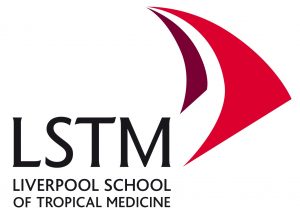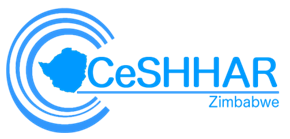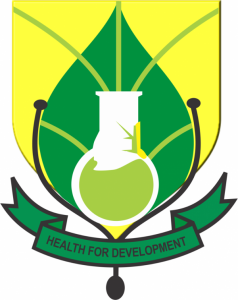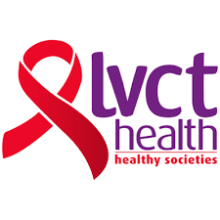Introduction
Gender and Equity within Antimicrobial Resistance (GEAR UP) is a Fleming Fund Regional Grant consortium led by the Liverpool School of Tropical Medicine. The GEAR UP initiative seeks to catalyze action on gender and equity within AMR by supporting Fleming Fund country grantees to mainstream gender and equity within routine AMR systems and structures. We aim to increase awareness, and contribute to the knowledge, on structural inequities driving and shaping the AMR response.
AMR does not impact all populations equally—it intersects with gender, geography, and socioeconomic factors, often exacerbating health disparities among vulnerable and marginalized groups. GEAR UP aims to address these inequities by promoting inclusive, evidence-informed policies and practices in AMR responses across participating countries.
Objectives
The partners that make up the GEAR UP regional grant consortium work to:
- Promote the integration of gender and equity considerations into existing AMR surveillance structures.
- Advocate for national AMR action plans that are inclusive, gender-responsive, and equity-focused.
- Generate and contribute to context-specific research evidence on gender and AMR.
- Support mutual learning and collaboration with country grantees on best practices for gender and equity integration in AMR strategies.
Approach
HERD International brings its extensive experience in health systems research, gender analysis, andcommunity engagement to GEAR UP. As part of the consortium, HERD International collaborates closely with Fleming Fund country grantees in Nepal and Indonesia to enhance national efforts through:
- Strategic technical input into AMR surveillance related protocols, tools, guidelines and other relevant documents from gender and equity dimensions.
- Operational research to explore gendered dimensions of AMR.
- Capacity strengthening and cross-country learning exchange with implementing partners.
- Contribution to the global knowledge base and communities of practice focused on equity and AMR.
Partners
The GEAR UP consortium is coordinated by the Liverpool School of Tropical Medicine (UK) and includes the following partners:
- HERD International (Nepal)
- BRAC James P Grant School of Public Health, BRAC University (Bangladesh)
- LVCT Health (Kenya)
- Centre for Sexual Health and HIV/AIDS Research – CeSHHAR (Zimbabwe)
- University of Health and Allied Sciences (Ghana)
Together, the consortium aims to make AMR responses more equitable, inclusive, and grounded in real-world evidence.
Associated Team Members
Abriti Arjyal
Research Manager - Qualitative and Multidisciplinary ScienceAbriti Arjyal
Research Manager - Qualitative and Multidisciplinary ScienceAbriti Arjyal has more than a decade of experience in the health system and social research, with specific expertise in implementation science and applied research. As a Research Manager in Qualitative and Multidisciplinary Science, she has led and contributed to several research projects as a co-investigator, thematic lead, or a member of the research team. and has established a network with national and international research experts. She has wide-ranging experience in the application of numerous research methods, including qualitative tools [...]
Learn moreAyuska Parajuli
Senior Research OfficerAyuska Parajuli is a public health researcher and a former nurse with strong willed spirit and a wealth of experiences in the field. Armed with a Master’s in Public Health (MPH), Ayuska has dedicated more than five years to the persistent pursuit of understanding and addressing critical issues in public health. Her expertise spans various domains, with a particular focus on antimicrobial resistance, gender and intersectionality, and infectious diseases of poverty such as tuberculosis and lymphatic filariasis. Ayuska’s commitment to [...]
Learn moreSushil Chandra Baral
Managing DirectorDr. Sushil Chandra Baral is an experienced health and development expert with over 25 years of experience in research and development. Specializing in health systems, health policy, and planning at both national and international levels, Dr. Baral has played a pivotal role in communicable disease control, specifically Tuberculosis. He serves as a Managing Director at HERD International. In the past, he worked as a Strategic Advisor for the Nepal Health Sector Support Programme demonstrating expertise in program-based operational research and [...]
Learn moreProject Location
Similar Projects
BACKGROUND Evidence has shown that antibiotic resistance (ABR) is a growing threat to public health in Nepal. This project proposes to ...
Introduction Globally, Antimicrobial Resistance (AMR) poses a profound threat to humanity, with consequences ranging from increased ...
Antimicrobial resistance (AMR) is a major threat to global health, food sustainability and security, and socio-economic development. ...
BACKGROUND The Constitution of Nepal states that every citizen shall have the right to seek basic health services (BHS). Urban ...
Introduction The Participatory Engagement of City Communities Against Non-communicable Disease Risk in Bangladesh and Nepal (PECAN) ...
Introduction The Pandemic Preparedness Toolkit (PPT) is a five-year project (2023 – 2028), funded by Wellcome, which aims to ...
Introduction The climate crisis is a global health threat. Heatwaves, droughts, floods and landslides cause substantial morbidity and ...
Background The growing numbers of urban poor around the world face several health challenges including the double burden of ...
Introduction The KfW Development Bank has supported the cooperation framework between Nepal and Germany for over 20 years. This ...
Understanding the policy environment, people’s perception and use, and co-creating intervention for labelling of SSBs to reduce ...








